The Cremator is a tchecoslovaque film of genre Drama directed by Juraj Herz with Rudolf Hrušínský
The Cremator (1969)
Spalovač mrtvol
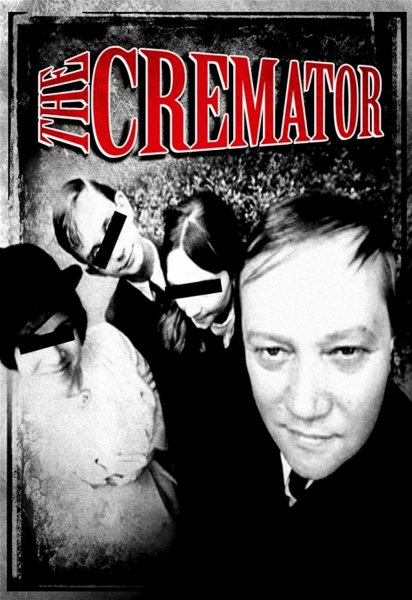
If you like this film, let us know!
- Infos
- Casting
- Technical infos
- Photos
- Videos
- Film quotes
- Characters
- Music
- Awards
The Cremator (Czech: Spalovač mrtvol) is a 1969 Czechoslovak horror comedy/drama film directed by Juraj Herz, based on a novel by Ladislav Fuks. The screenplay was written by Herz and Fuks. The film was selected as the Czechoslovakian entry for the Best Foreign Language Film at the 42nd Academy Awards, but was not accepted as a nominee. In 1972, it won the Festival de Cine de Sitges Best Film award, where it also received awards for its star Rudolf Hrušínský and cinematographer Stanislav Milota.
The story is set in 1930s Prague, where the cremator Karel Kopfrkingl lives and works. The story combines features from black comedy and horror (comedy horror). It is often recognized as a follower of German Expressionist film and also as an example of the Czechoslovak New Wave. The film was banned after its premiere in 1969, and remained in the vault until the collapse of the communist system in Czechoslovakia in 1989.
With the score of 90,2% on the Czech and Slovak Movie Database as well as praise from movie critics, The Cremator is considered to be one of the best movies ever made in Czechoslovakia as well as a prominent cult film.
Synopsis
The movie takes place against the backdrop of the political radicalization of Europe during the 1930s, more specifically the demise of the golden era of the First Czechoslovak Republic and the establishment of the Protectorate of Bohemia and Moravia under Nazi Germany. Spiritually, the movie takes place in the aftermath of the death of Thubten Gyatso, the 13th Dalai Lama in 1933.Actors
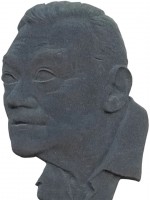
Rudolf Hrušínský
(Karel Kopfrkingl)

František Smolík
(Lakmé; Dagmar)

Míla Myslíková
(Silly Woman)

Jiří Menzel
(Dvorak)

Eduard Kohout
(Bettleheim)
Comments
Leave comment :
Suggestions of similar film to The Cremator
There are 45 films with the same actors, 9 films with the same director, 96131 with the same cinematographic genres (including 132 with exactly the same 4 genres than The Cremator), to have finally 70 suggestions of similar films.If you liked The Cremator, you will probably like those similar films :
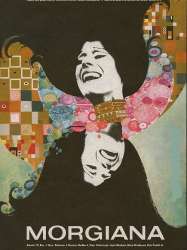
Morgiana (1972)
, 1h46Directed by Juraj Herz
Origin Tchecoslovaquie
Genres Drama, Horror, Crime
Actors Iva Janžurová, Josef Abrhám, Petr Čepek, Jiří Kodet, Josef Somr, Ivan Palúch
Rating71%





La lecture d'un testament : un homme lègue toute sa fortune à sa fille Klára, au détriment de son autre fille Viktoria. Viktoria tient un établissement nommé « la Flûte verte », et voit sa sœur attirer les hommes, contrairement à elle. Vitoria décide alors de tuer Klára, en se procurant un poison indécelable qui la rendra malade et la tuera au bout de quelques semaines. Après avoir versé le poison dans le verre de sa sœur, déçue de ne pas voir de résultats immédiats, Viktoria en donne à un chien de sa maison. Mais son chat siamois Morgiana a peut-être bu à sa place. Pendant ce temps, Klára tombe malade et commence à avoir des hallucinations.

Beauty and the Beast (1979)
, 1h23Directed by Juraj Herz
Origin Tchecoslovaquie
Genres Drama, Fantastic, Fantasy, Horror, Romance
Themes Children's films
Actors Zdena Studenková, Václav Voska, Jana Brejchová
Rating74%





Julie is a bankrupt merchant's daughter who, as the only one of the three daughters, chooses to save her father's life. She goes to the Haunted Wood's Castle where she meets Netvor. Netvor has no qualms about killing Julie, but her beauty prevents him from doing so. Although Julie is forbidden to look at him, she starts to love him and the love rescues him from his curse.
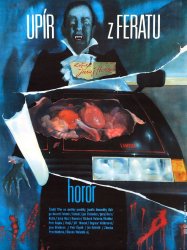
Ferat Vampire (1982)
Directed by Juraj Herz
Origin Tchecoslovaquie
Genres Science fiction, Horror
Actors Jiří Menzel, Petr Čepek, Blanka Waleská, Juraj Herz
Rating58%





Doctor Marek (Jiří Menzel) is shocked when his beloved nurse, Mima (Dagmar Veškrnová), signs a contract with foreign car manufacturer Ferat to work as a rally-driver. Rumours abound that the Ferat sports car runs not on petrol, but on human blood.
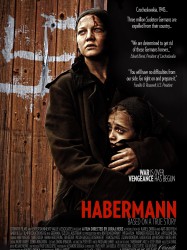
Habermann (2010)
, 1h44Directed by Juraj Herz
Genres Drama, War, Historical
Actors Karel Roden, Hannah Herzsprung, Franziska Weisz, Mark Waschke, Jan Hrušínský, Zuzana Kronerová
Rating69%





L'action se passe dans le village de Bludov dans les Sudètes, entre 1938 et 1945. L'histoire s'inspire de la vie d'Hubert Habermann, qui a vraiment existé, un meunier allemand qui parlait tchèque et qui vivait en Bohême.

The Ninth Heart (1979)
Directed by Juraj Herz
Genres Fantasy, Horror
Actors František Filipovský, Juraj Herz, Josef Kemr, Karel Effa, Václav Lohniský, Petr Hapka
Rating66%






Day for My Love (1977)
, 1h31Directed by Juraj Herz
Genres Drama, Romance
Actors Dana Medřická, Jan Hartl, Karel Smyczek, Zdeněk Srstka, Marta Vančurová, Vladimír Čech
Rating69%





Le couple formé de Marie et Petr doit faire face à plusieurs épreuves depuis le jour de leur mariage.

Oil Lamps (1971)
, 1h41Directed by Juraj Herz
Genres Drama
Actors Iva Janžurová, Petr Čepek, Ota Sklenčka, Míla Myslíková, Jaroslav Satoranský
Rating2%





In a small Czech town named Jilemnice lives an unfortunate but brave and jovial woman Štěpa Kiliánová, whose only desire was to fill the void in her virgin life. Out of despair and excessive trust, she marries a sardonic, reclusive man, former lieutenant and gambler Pavel Malina, whose only wish is to find peace and forget the past. They live through unrequited love, dislike and disappointment. But no one knows that her groom is showing signs of cerebral disease, which engulfs his sanity.

The Junk Shop (1965)
Directed by Juraj Herz
Genres Comedy
Rating66%





Un homme travaille comme brocanteur.
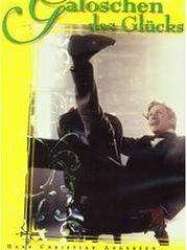
The Galoshes of Happiness (1987)
, 1h29Directed by Juraj Herz
Genres Fantasy
Themes Films about magic and magicians
Actors Jana Brejchová, José Luis López Vázquez, Miroslav Donutil, Juraj Herz, Jana Oľhová, Jiří Pleskot
Rating65%





À Copenhague, dans une grande maison, un soir de réception. Deux fées se trouvent là. Pour son anniversaire, la plus âgée décide d'offrir au commun des mortels une paire de souliers magiques, qui exaucent les vœux de celui qui les porte.

Justice for Selwyn (1968)
Genres Drama, Comedy
Actors Josef Kemr, Rudolf Hrušínský, Míla Myslíková, Věra Tichánková
Rating68%





 Connection
Connection